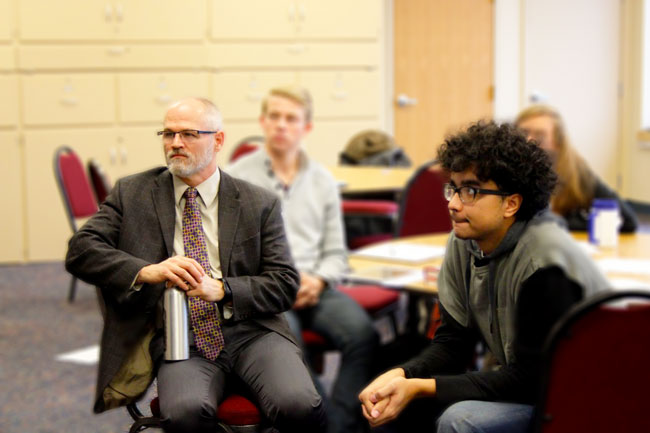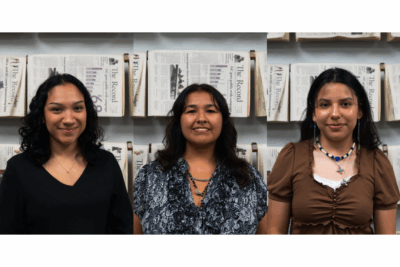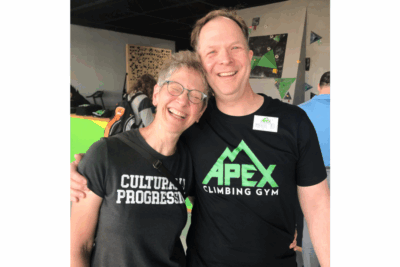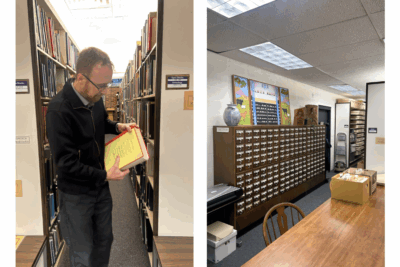Dr. Tobin Miller-Shearer visited Goshen College’s campus last month to conduct an oral history workshop to students. Held on Jan. 16, the workshop focused on the value and methodology behind oral history.
Ten interested students went to the workshop, with majors in peace, justice and conflict studies, history and education.“Oral history brings the historian in a room with the person whose story and whose memories are needed to uncover a part of the past that’s little known, or has never been recorded,” said Philipp Gollner, assistant professor of U. S. history.
The workshop opened with Miller-Shearer explaining to students the importance of oral history and how to best preserve this valuable practice. It differs from journalistic interviews because it draws on the deepest experiences from someone.
“We learned that oral history not only gives people unique insight into people’s experiences of the past, validates different cultural forms of communicating and gives necessary perspectives of subjectivity, but it most importantly lets people know that what they did during their life is important and worth recording,” said Laura Miller, a senior history major who was in attendance.
Miller-Shearer then went on to outline many of the techniques used in giving accounts of oral history and performing interviews, which some of the students will eventually perform when they have the opportunity to interview some of the original members of the Minority Ministries Council.
Some of the techniques were based around the comfortability of the interviewee and how to navigate the questions one asks.
“You don’t enter the space with a huge list of questions; rather, the process entails that you form questions and listen simultaneously in order to gain the most relevant material and not create a stilted environment,” said Miller. “It’s challenging and requires immense concentration!”
These students will conduct these oral history interviews as part of a project this coming March, where the students will build off of the works of people such as Miller-Shearer and Felipe Hinojosa, an associate professor at Texas A&M, who have both done extensive research on the histories of minorities in the Mennonite Church.
Regina Shands Stoltzfus, assistant professor of peace, justice and conflict studies and Jan Bender Shetler, professor of history, were also present at the workshop to give accounts of their experiences conducting and representing people through oral history interviews. Shands Stoltzfus spoke on her experiences interviewing African-American women from different Mennonite congregations and how their stories showed that their identities were much more grounded in local congregations than the denomination. Shetler reflected on her experiences doing oral histories in Tanzania.
Many of the students in attendance hope to use the skills they learned in the near future or perhaps in their vocational pursuits.
“I’m excited to have the chance to practice these skills the last weekend in March for the Minority Ministries Council Conference, where we will be collecting oral histories from these important leaders of color in the Mennonite Church who challenged racism in the 1960s and ’70s,” said Miller. “Hopefully, I’ll be able to use these skills throughout my life, whether it’s for formal research or my own interest.”
Overall, while most forms of research involve pulling information from many different sources, both historical and current, oral history can be one of the most empowering to those who conduct the research and those who are sharing their information.
One of the largest takeaways that Miller-Shearer stressed was the role validation plays in oral history interviews. It can also be a valuable way to connect with those who have expertise in many areas in one’s local community.



